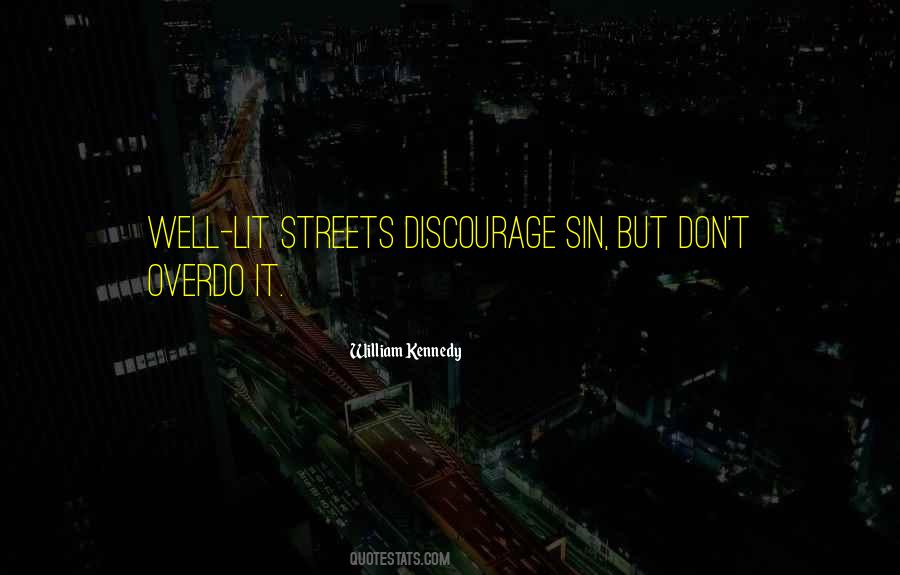
Top 33 Urban History Quotes
#1. EMBRACING THE EXISTING Japanese perspective on urban history and context
Kengo Kuma
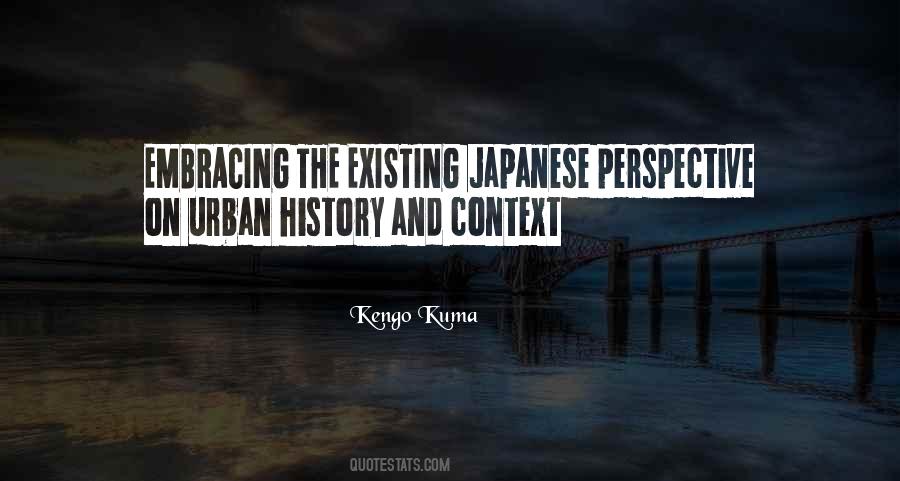
#2. I am a curious creature and put my finger in as many cakes as I can: history, film, technology, etc. I'm also a freak for urban history, particularly Barcelona, Paris and New York. I know more weird stuff about 19th-century Manhattan than is probably healthy.
Carlos Ruiz Zafon
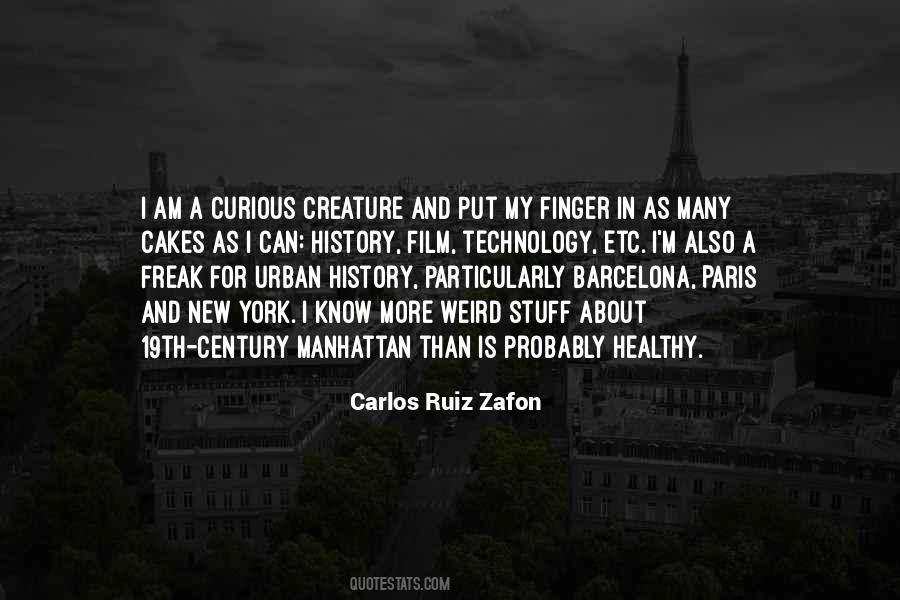
#3. There is an erroneous tendency to view empire-building by rulers from urban-agrarian kingdoms (Alexander, for example) as strategic genius, while treating nomad imperial conquests like natural disasters.
James A. Millward
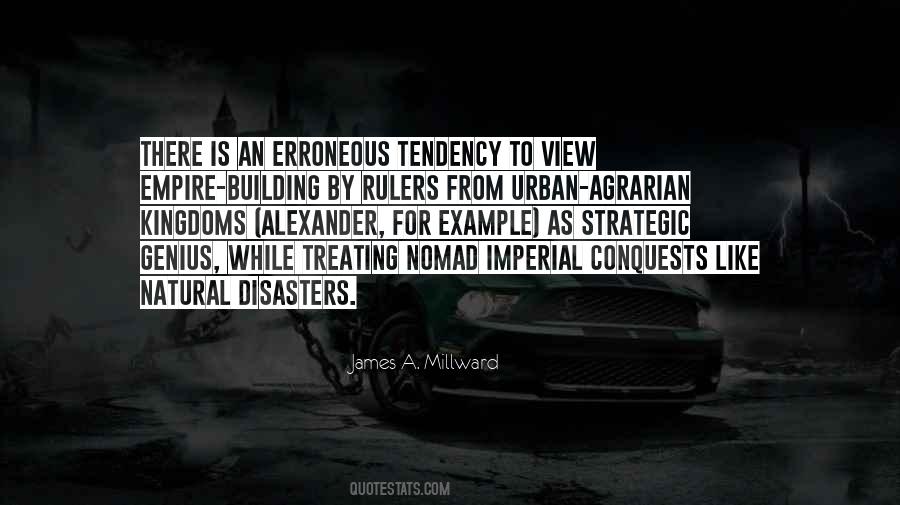
#4. Since its founding, Detroit has been a place of perpetual flames. Three times the city has suffered race riots and three times the city has burned to the ground. The city's flag acknowledges as much. Speramus Meliora; Resurget Cineribus: We hope for better things; it shall rise from the ashes.
Charlie LeDuff
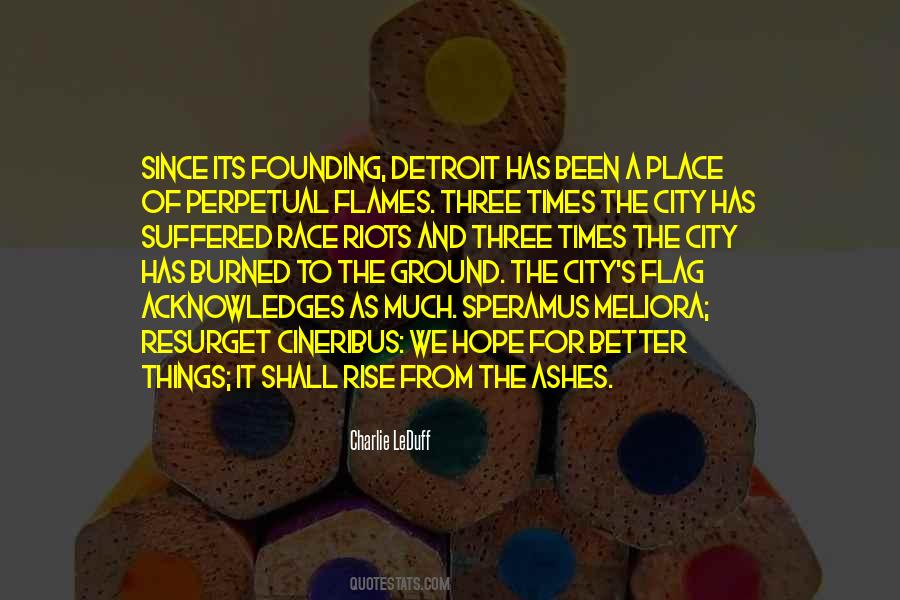
#5. Later that year, the Voting Rights Act opened the door for thousands to register for the first time.
Junius Williams
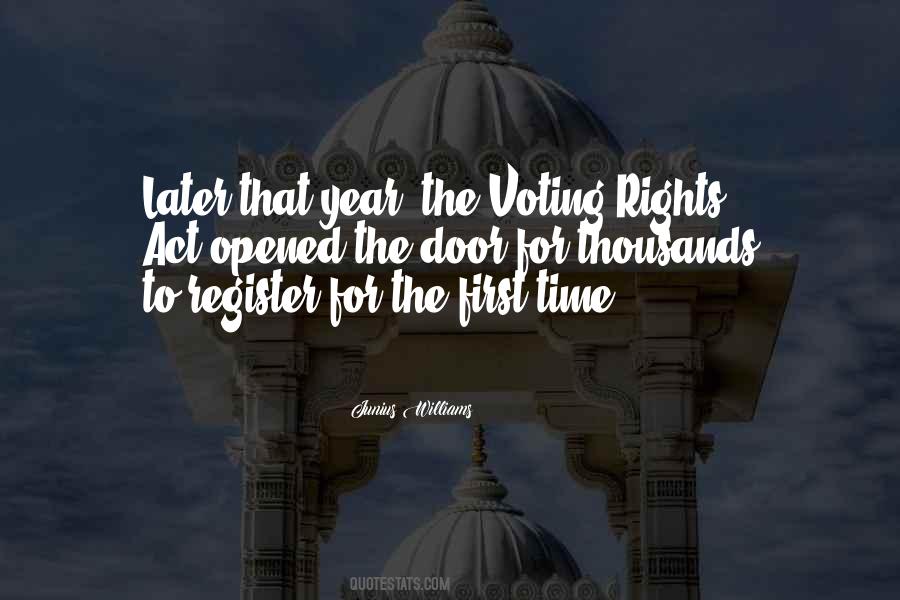
#6. We learned how to envision a different neighborhood, fought for the resources to make it happen, and in March 1968, through the Medical School Agreements, had been given the green light to proceed. All we had to do was make it happen
and ascend to a new level of power in the community.
Junius Williams
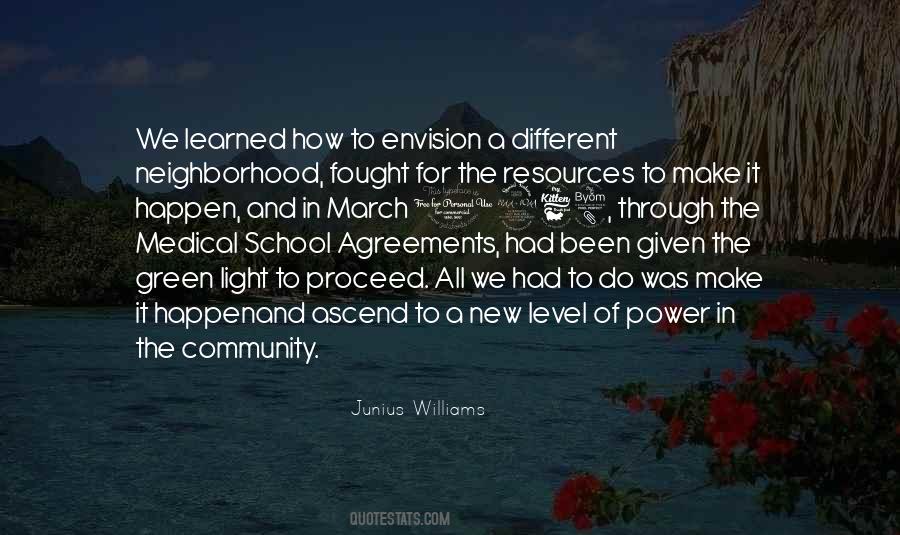
#7. By the middle to the end of the 1970s, Black Power as we envisioned was a dream deferred. And I was no longer in a position to awaken the minds of the people about what was happening.
Junius Williams
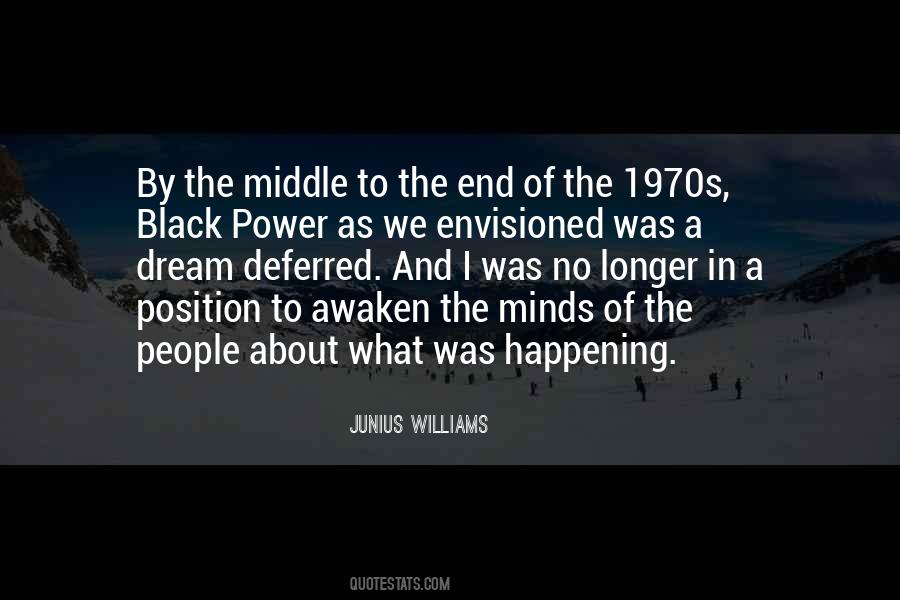
#8. Maybe that's why I'd been chosen to become the first female Reaper in history. I think the boys had been losing too many souls.
Tish Thawer
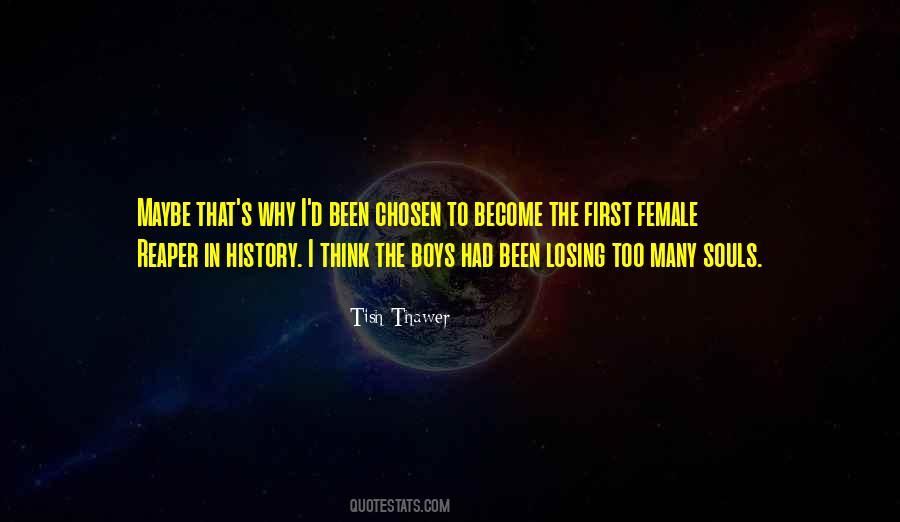
#9. The homage paid to the fragment and the dismantling of the large narratives had had their spatial counterpart in the lack of integrated and conceptual vision of urban construction, and perhaps also of social construction.
Sverker Sorlin
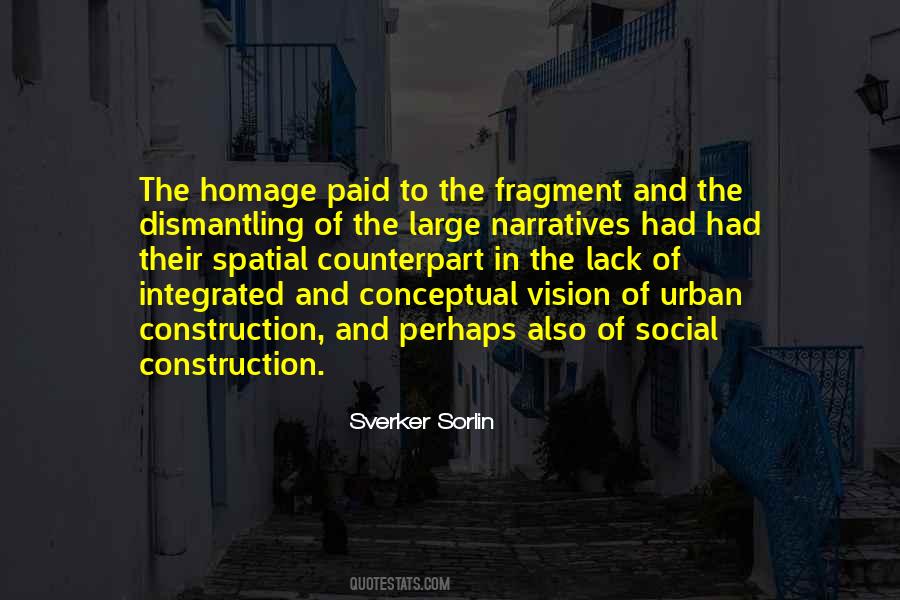
#10. Ironworkers also settled in Detroit and Buffalo. They were, for the first time in the history of Native Americans, creating a new class--the urban Indian.
David Weitzman
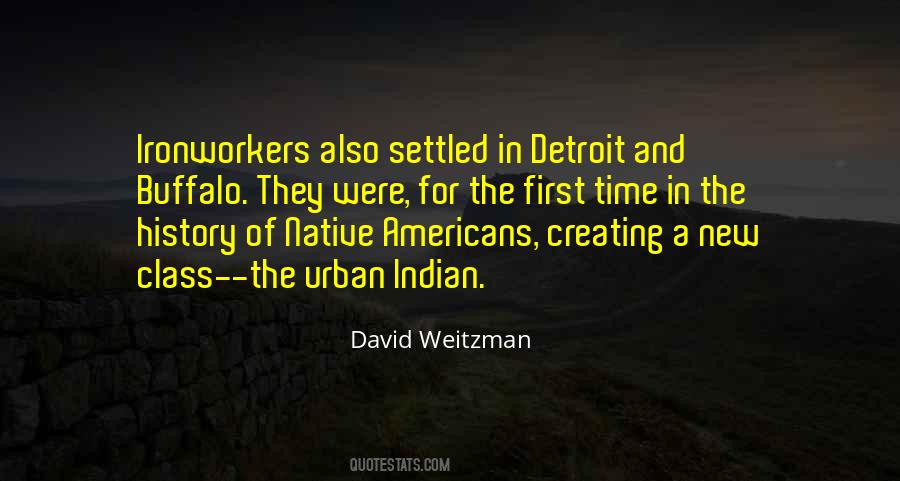
#11. Broad Street marked the first time in history when a reasonable person might have surveyed the state of urban life and come to the conclusion that cities would someday become great conquerers of disease. Until then, it looked like a losing battle all the way.
Steven Johnson
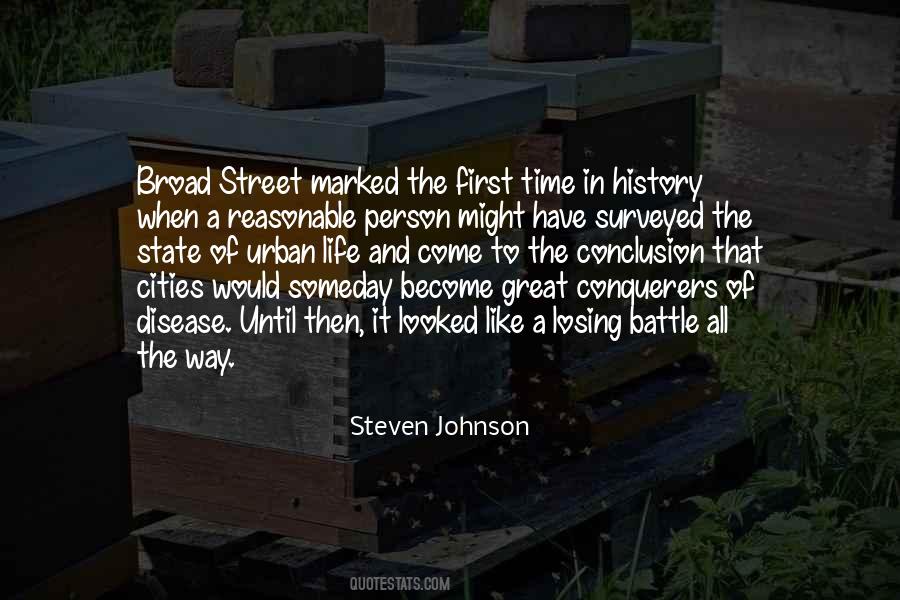
#12. Toward the end of the Second World War, a
new consciousness arose amongst the public
and policy makers of the Western World. After
ten years of crippling economic depression
and another five at war, the public demanded
something new from their disintegrating
urban environments.
Lucas Mascotto-Carbone
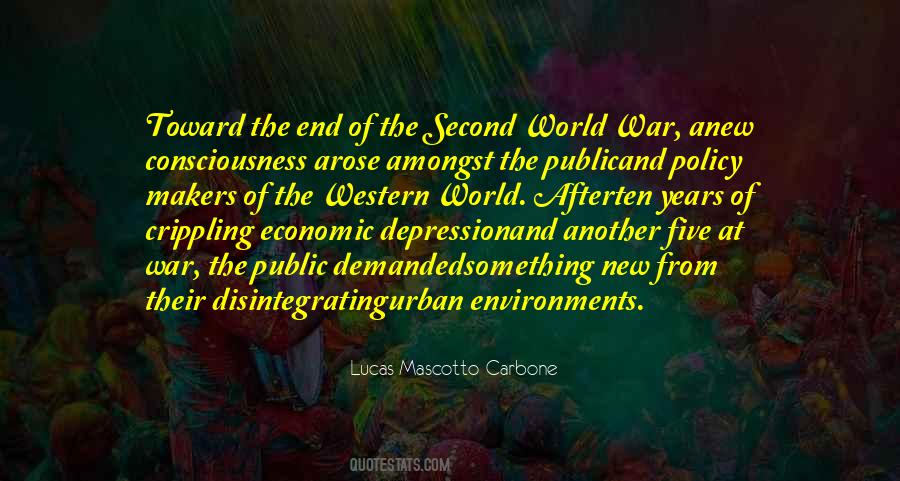
#13. History has been written, but it has not always been right or complete.
Toi Thomas
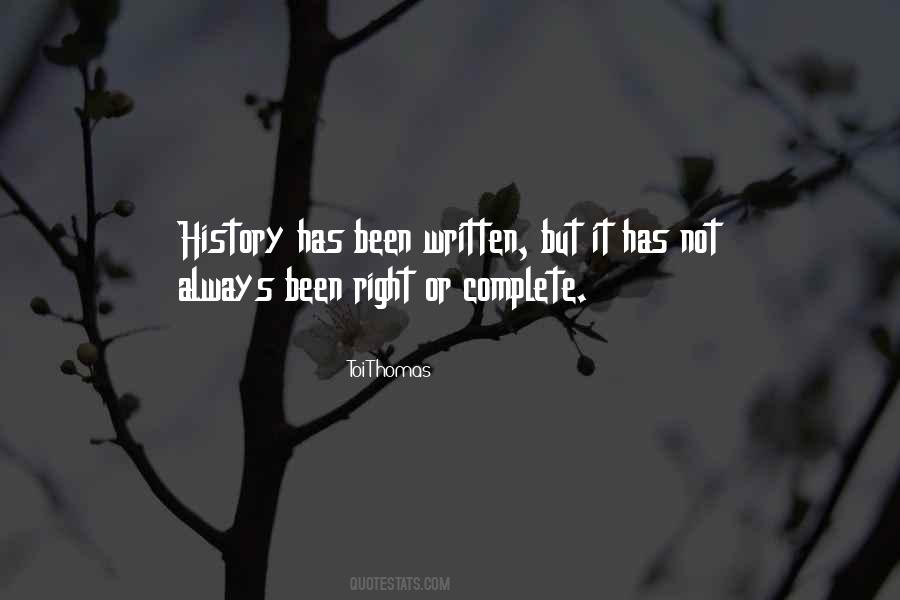
#14. I had never run a campaign, but I was an organizer. My job was to create momentum by mobilizing the constituency we had, which I was positioned to do.
Junius Williams
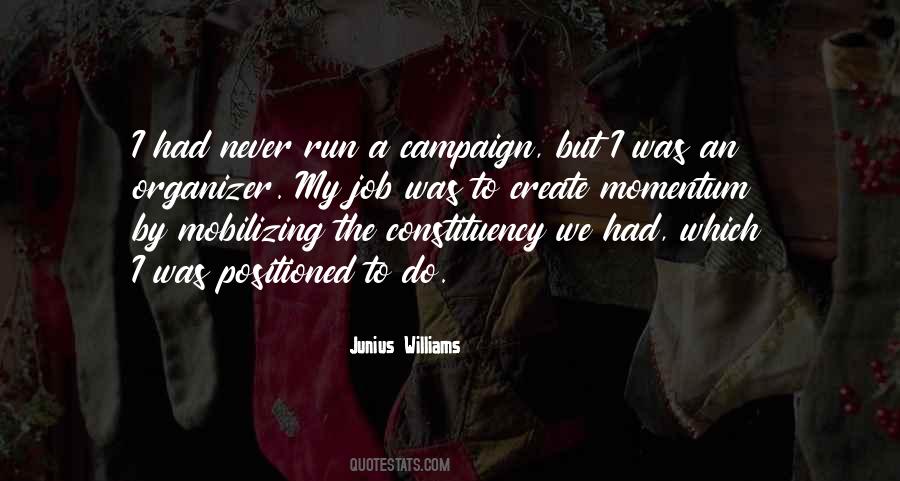
#15. But despite the scarcity of confrontation with whites in our neighborhood, race and racism permeated every aspect of our lives. Our parents taught us that in order to succeed, we 'had to be twice as good as white folks.' We were constantly being prepared to enter a world dominated by whites.
Junius Williams
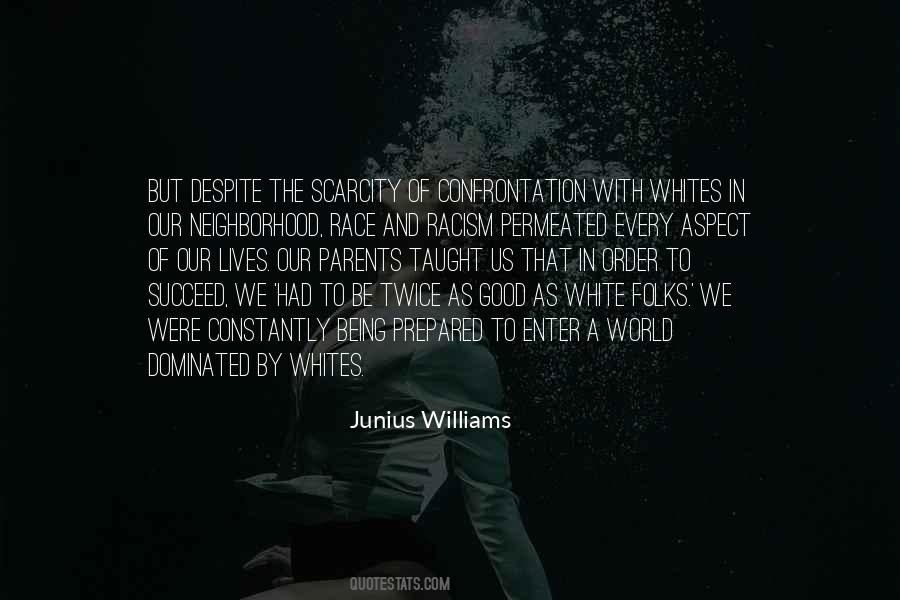
#16. The youth were to be trained to be the vanguard of the next battlefront, whatever that was. I knew within my heart that the Gibson experiment in city hall would attract enemies, so I intended to teach these young people how to fight on this new battlefield.
Junius Williams
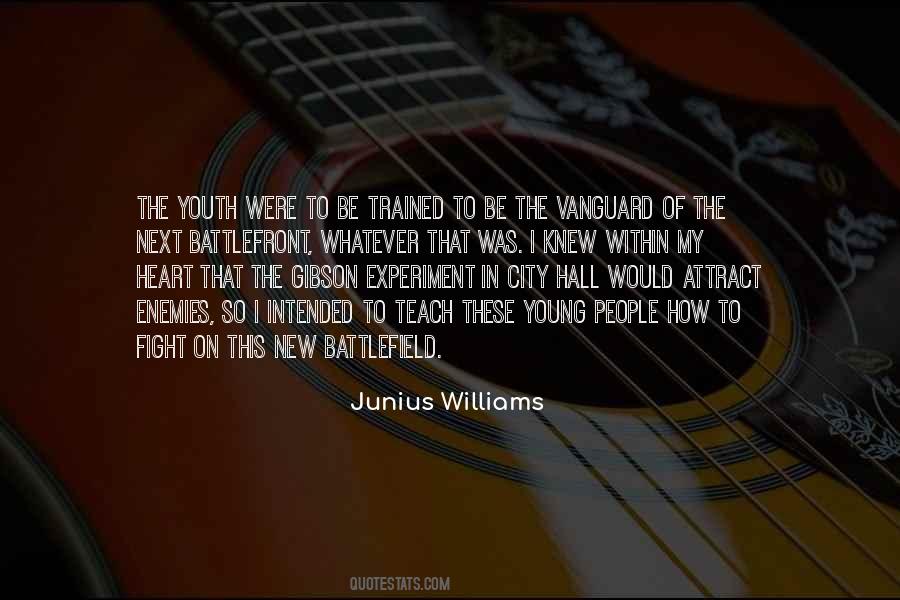
#17. I had no way of predicting that Selma to Montgomery was indeed to be the last great civil rights march of the era, and that everything afterward would indeed by 'post-civil rights.
Junius Williams
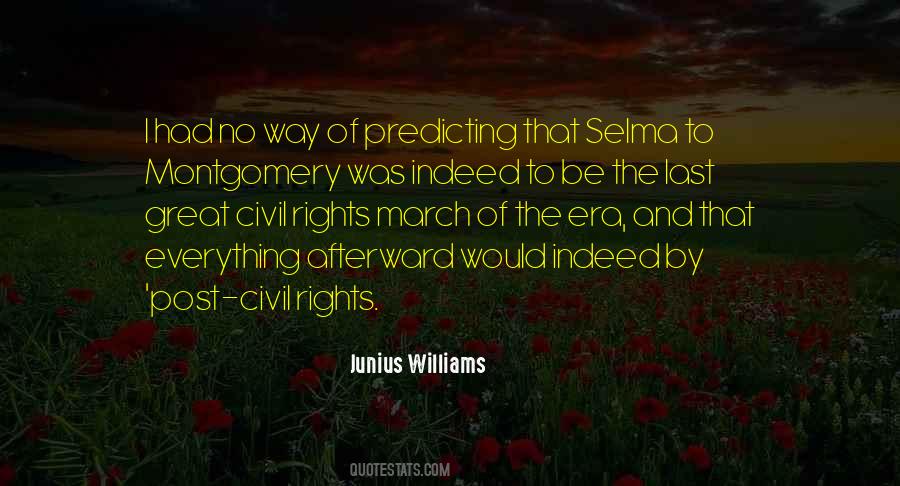
#18. These handkerchief gardens are a traditional German solution to apartment dwellers' yearning for a tool shed and a vegetable garden. They make a patchwork of green in odd corners of urban land, along train lines or canals or, as here, in the lee of the Wall.
Anna Funder

#19. Black power showed up in different ways, depending on the goals of the group.
Junius Williams
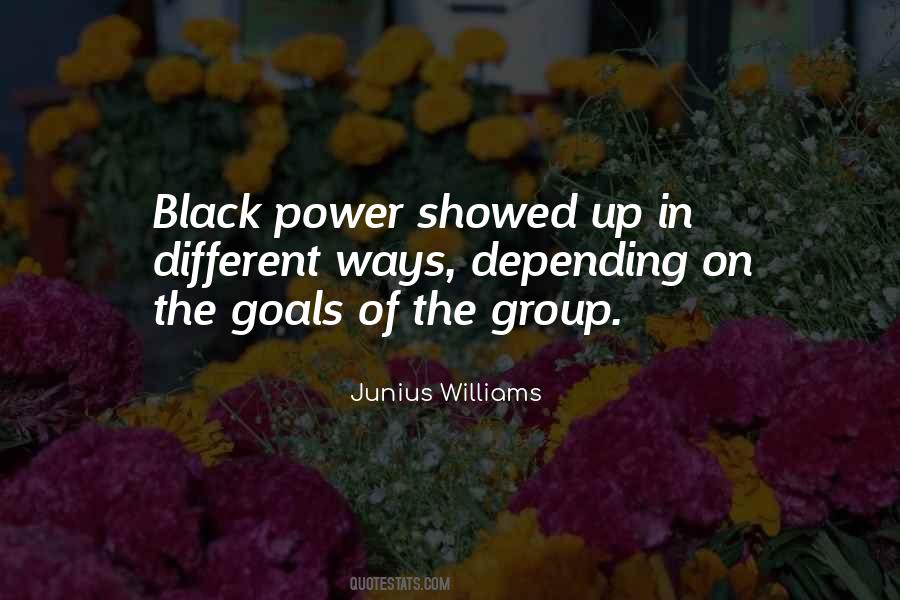
#21. I wanted to show the history and strength of all kinds of black women. Working women, country women, urban women, great women in the history of the United States,
Elizabeth Catlett
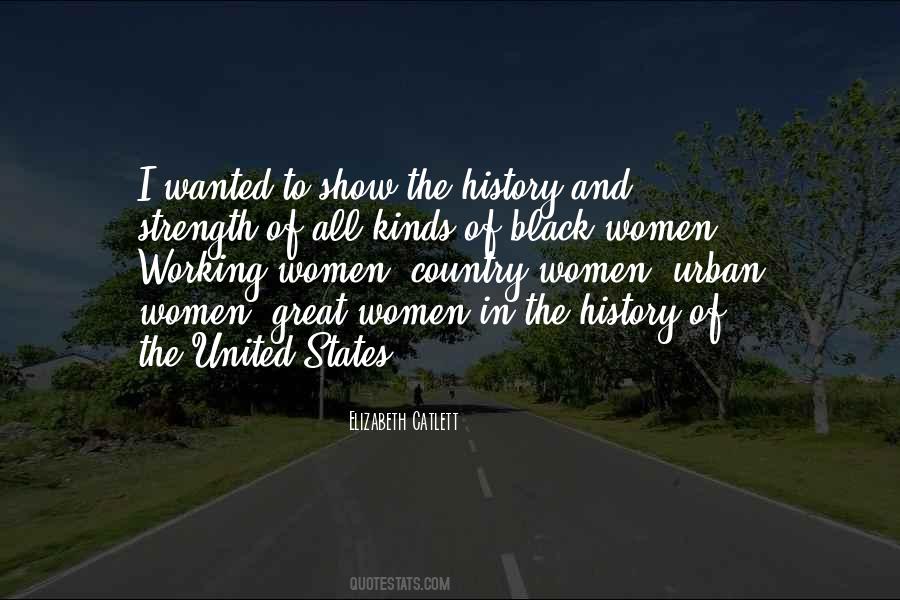
#22. Gods, he felt so good.
My hands splayed along his now clean torso and I leaned over and bit his bottom lip. No other man in the history of the universe was as hot as he was. I would dare anyone to say otherwise. My wolf barked her agreement.
Amanda Carlson
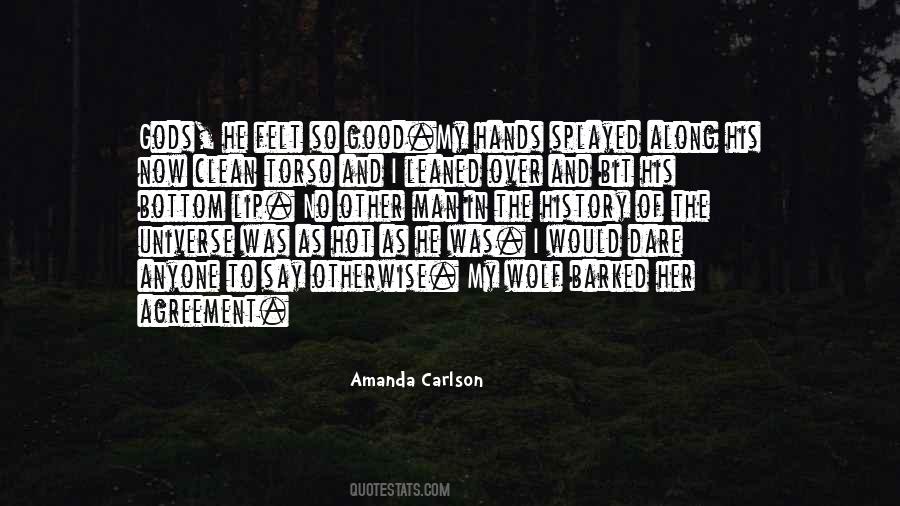
#23. It's history as it should have happened. It's history made better.
R.A. McCandless
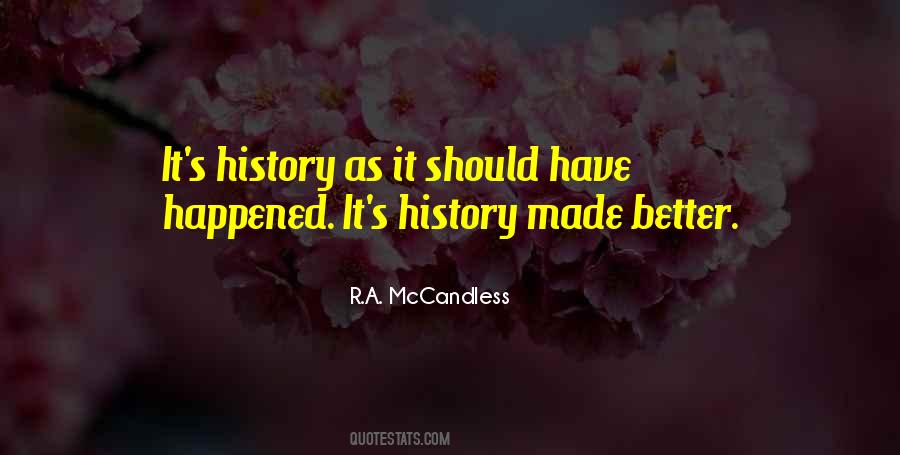
#24. Life was not always so peaceful and rewarding at NAPA (the office). Sometime during 1968, I cam back to the office and found the plate glass window shattered. I asked Ab what happened, and he strangely knew nothing.
Junius Williams
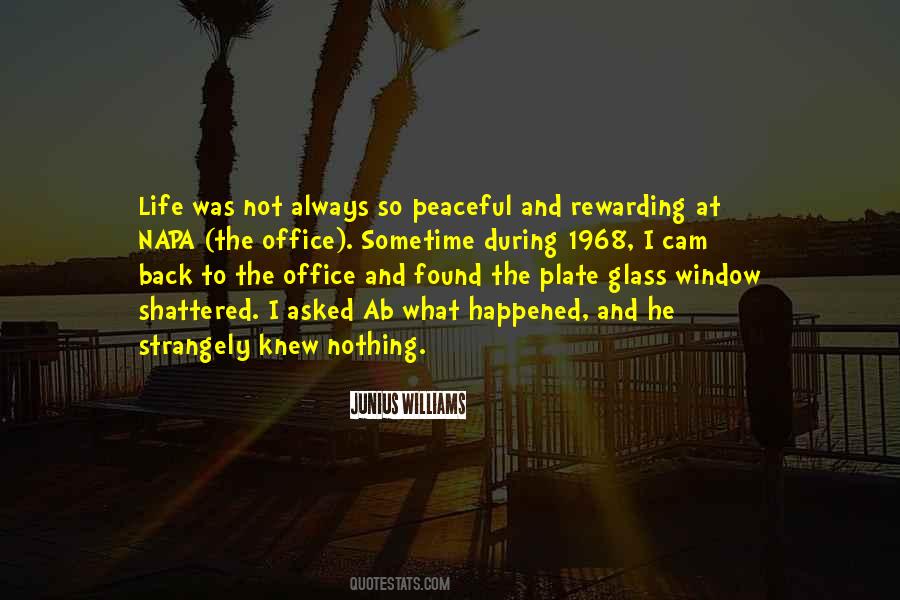
#25. So on June 16, 1970, history was made in Newark. Ken Gibson became the first black mayor of a major Northeastern city.
Junius Williams
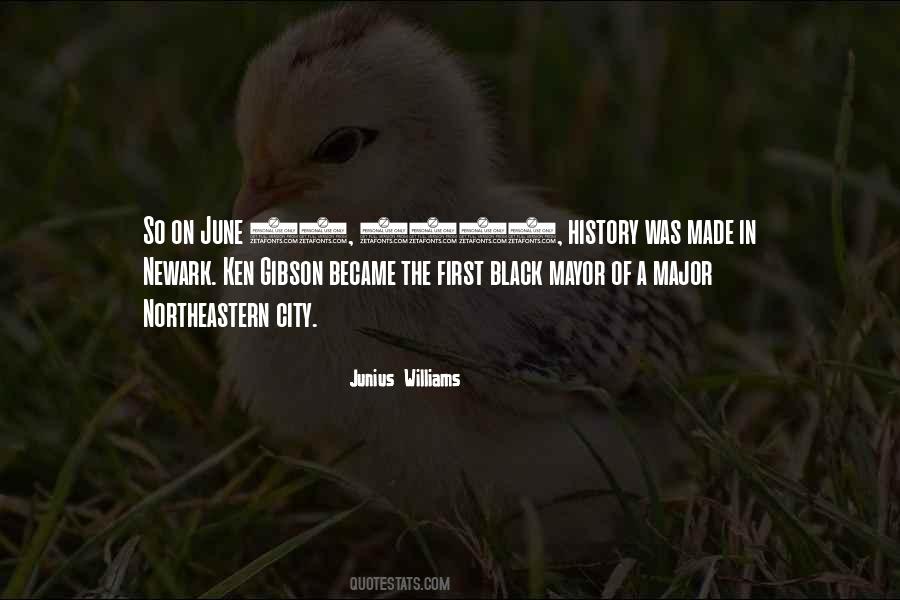
#26. There was an aura about King that was unforgettable. I seem him now in my mind's eye: collected, peaceful, calm. He was in his element and totally in command of himself and the situation.
Junius Williams

#27. With the success of Immature, I wanted to start the group B2K, which ended up being one of the biggest urban boy bands in history.
Chris Stokes
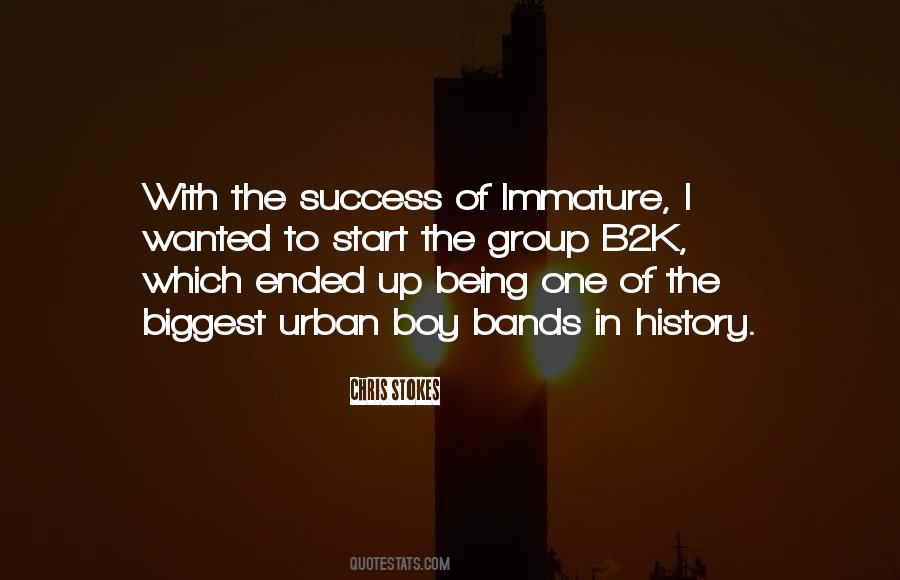
#28. Not until the beginning of the 20th century did Europe's urban populations finally become self-sustaining: before then, constant immigration of healthy peasants from the countryside was necessary to make up for the constant deaths of city dwellers from crowd diseases.
Jared Diamond
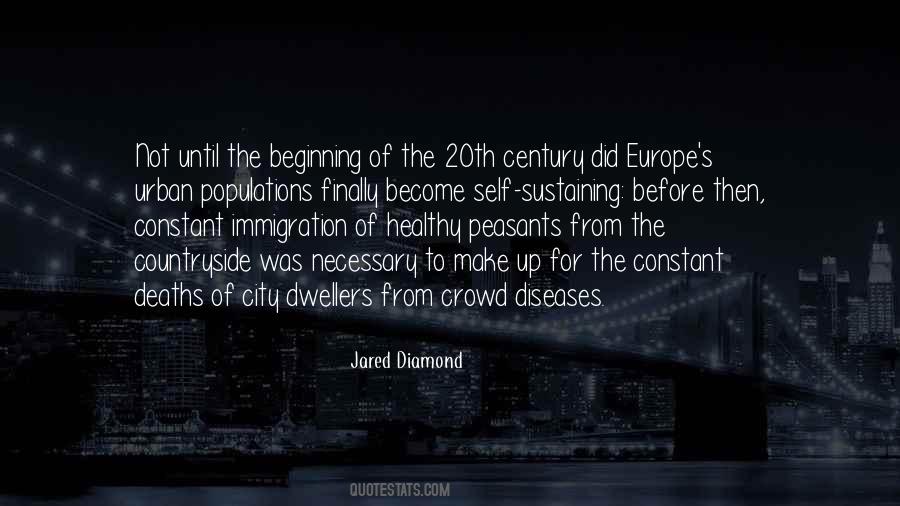
#29. The methodologies of examining hip hop are borrowed from sociology, politics, religion, economics, urban studies, journalism, communications theory, American studies, transatlantic studies, black studies, history, musicology, comparative literature, English, linguistics, and other disciplines.
Michael Eric Dyson
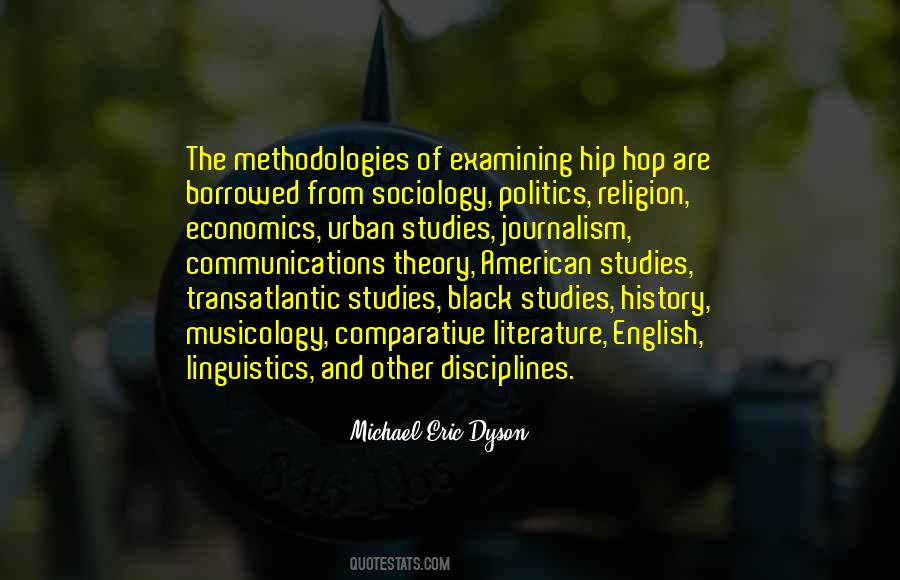
#30. Tiredness sets a natural limit to what a human being is prepared to walk daily, and this limit has taught man all through history the size of rural or urban communities.
Leon Krier
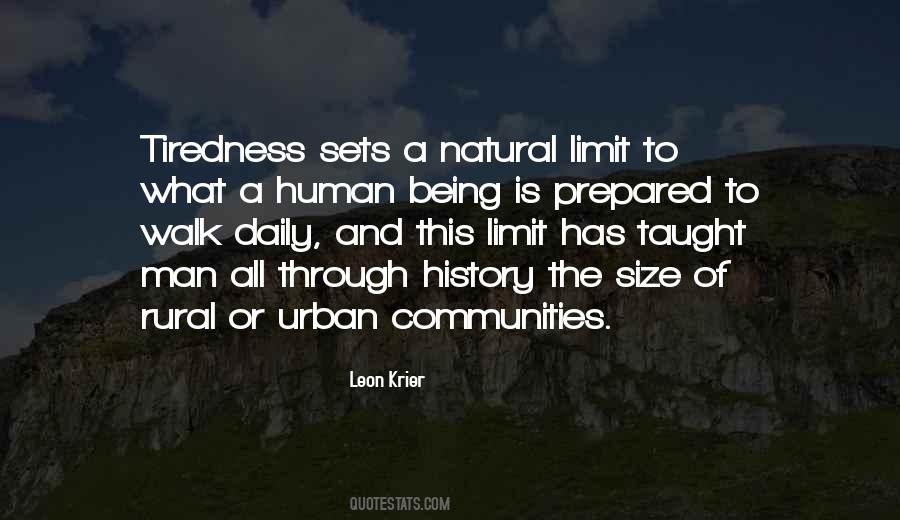
#31. Knocking on doors wasn't working. We had to try something else. Remember the kids whose natural curiosity brought them into our little office on the corner? We set up a Freedom School that was fashioned after the SNCC Freedom Schools in Mississippi and other places.
Junius Williams
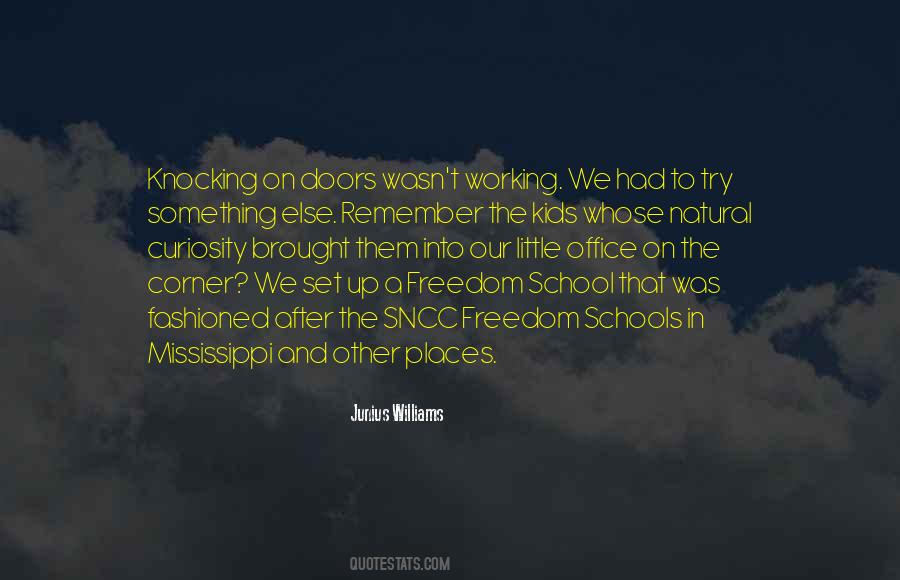
#32. The history of the development of any urban center will be incomplete without a mention of the role of mass transit in the whole process. In deed the role of mass transit as a catalyst of industrial revolution and urbanization cannot be over emphasized. In the case of the New
Clifford N. Opurum
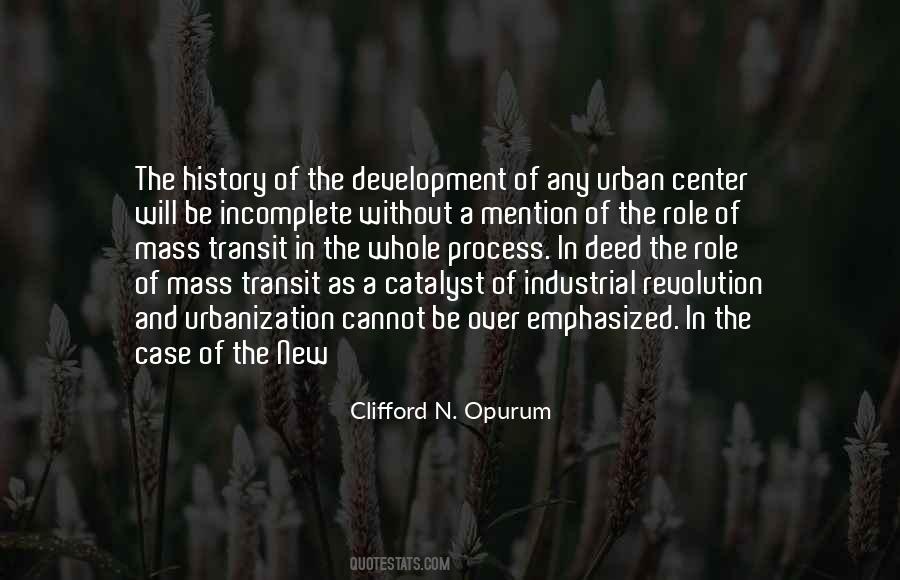
#33. The circumstances of everyday life were too demanding-and in American's great cities, appalling.
Charles E. Rosenberg
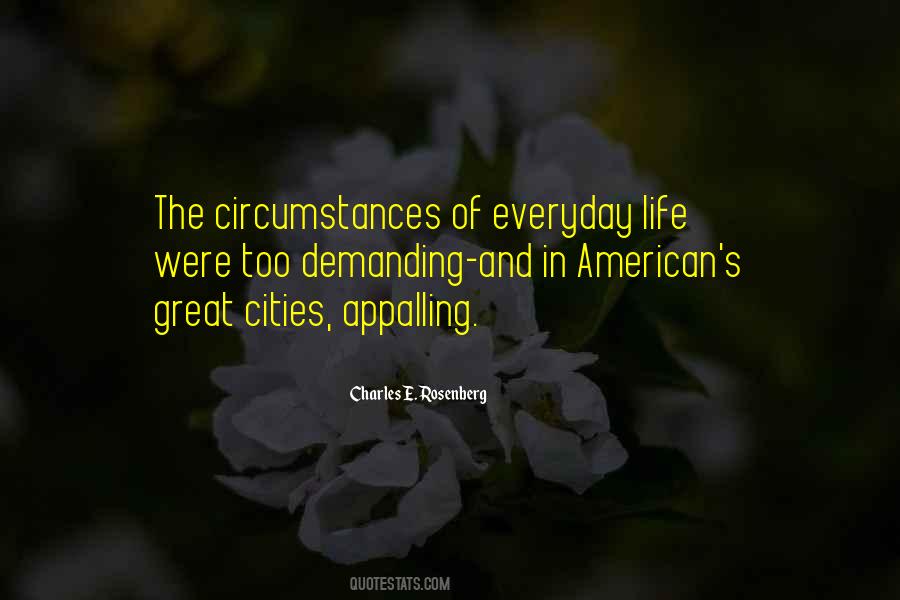
Famous Authors
Popular Topics
Scroll to Top



















